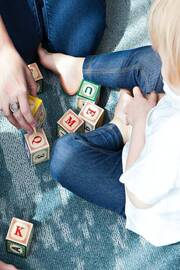Why Students Prefer Visual Learning While Studying
Visual content has grown increasingly significant in all aspects of human life in the contemporary era. Because 65 percent of individuals learn best through visuals, they are vital for eLearning courses. By diving into important statistics and facts, this will investigate why students prefer visual learning when studying.
Memory For Visuals Tends To Be Quite Robust
Associating ideas with concrete visuals is a simple but effective strategy for helping students remember what they’ve learned. Students are more likely to retain information presented visually because they are able to make more sense of it and focus more intently on it. Studies have shown that after three days, people only remember 10% to 20% of what they read or hear, but they recall over 65% of what they see.
Visuals Are Far More Efficient At Conveying Meaning Than Words
Having the data laid out in bullet points makes them much easier to read and absorb. The same data, presented as a picture or video, is processed much more rapidly. Our eyes can detect 36,000 visual signals every hour, while the brain can process pictures lasting just 13 milliseconds, as reported by Visual Teaching Alliance. Within a tenth of a second, our brains can process enough visual information to form an overall impression of a situation. Images can be processed 60,000 times faster than words by the human brain. Since visual learning is so important to them, osmosis is one of the best online learning platform for medicine currently available.
Stimulates Students’ Curiosity
Have you ever noticed how much more engaging a lecture gets when the speaker incorporates a humorous image onto the board? Text-only classroom lectures might be dull for some students. Studying using visuals can be a lot of fun and a really intriguing experience. Including images in your notes is one way to make even the most boring lectures more interesting. Using visual aids such as pictures, colors, and sketches helps learners stay interested and concentrated.
Improve Your Capacity For Higher-Level Reasoning
When dealing with complex or text-heavy subjects, visual aids like diagrams and infographics can be invaluable. Including images in notes helps us retain information because it engages our imagination. In addition, when we put our minds to the task of translating words into pictures, we exercise our higher-order cognitive processes.
Visuals Can Facilitate Faster Learning
According to research, seeing something helps our brain digest it more quickly than reading words. It’s easier and quicker to absorb data presented in visual formats like flowcharts, graphs, symbols, etc. Having something to look at may help us remember and understand concepts more thoroughly. Visuals like pictures are kept in our long-term memory, although our short-term memory can only hold a tiny amount of information. Words are difficult to recall because they are abstract and complicated, and our brains are wired to prefer pictures. Consider how quickly your mind can conjure up a logo for any brand, even before you can remember the name of the brand itself.
The Bottom Line
A visual system is a powerful tool for education. Most individuals can recall any information presented to them in a visual style. Do you learn best by reading about something, or would you rather have it demonstrated in an image or video? Since pictures are more appealing than written information, most individuals would choose the latter option.





 Author bio:
Author bio:




